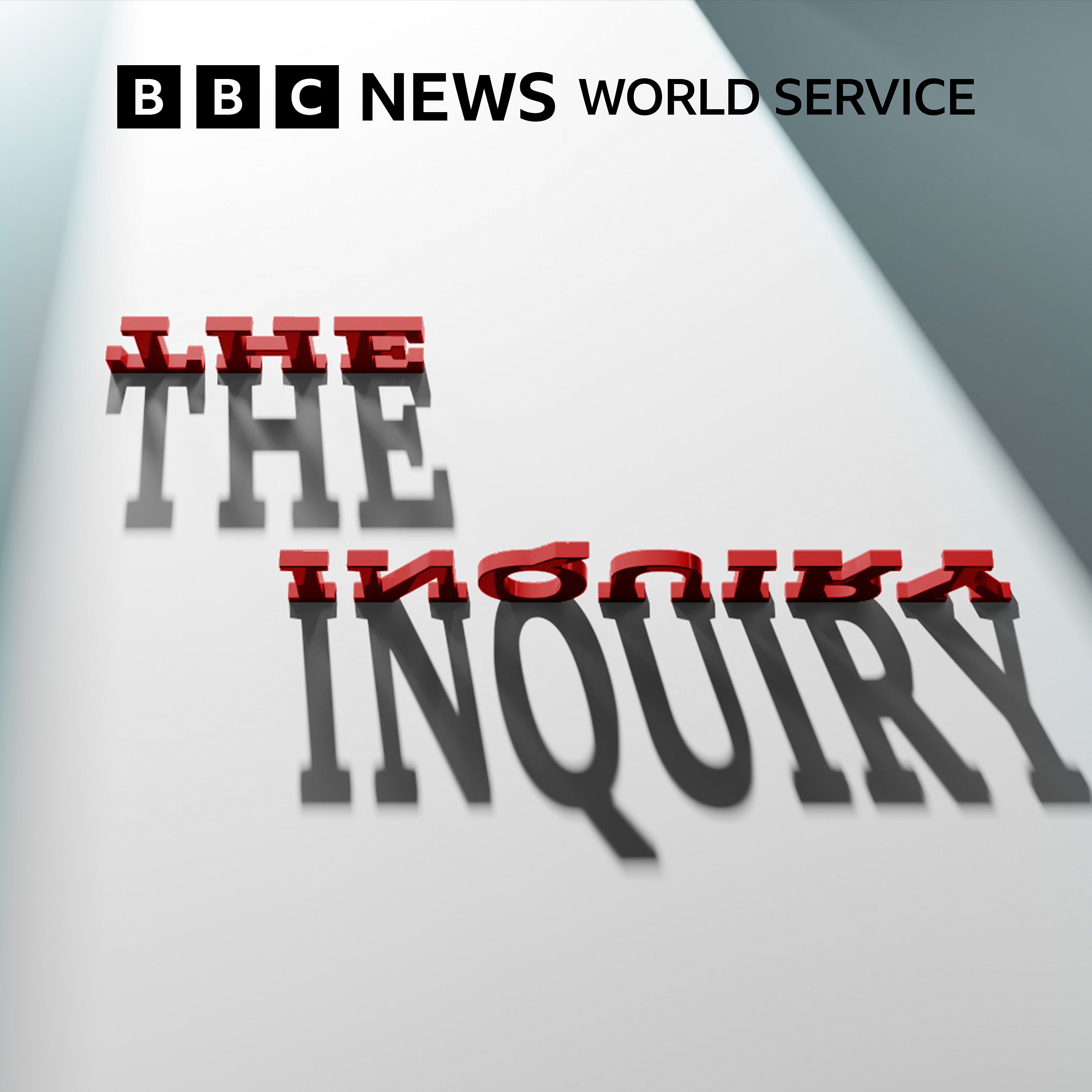

The Inquiry
BBC World Service
The Inquiry gets beyond the headlines to explore the trends, forces and ideas shaping the world.
Episodes
Mentioned books

Jan 4, 2024 • 24min
Are orcas OK?
Orcas in South Western Europe are attacking boats and destroying rudders, a behavior linked to man-made hazards. The podcast explores their lifespan, distribution, and collective intelligence. It also discusses conflicts between humans and orcas in fisheries, the impact of overfishing on Kiloels, and the urgency of changing human interaction with killer whales for a healthy marine ecosystem.

Dec 28, 2023 • 23min
What’s going on with sargassum seaweed?
Sargassum seaweed has been a phenomenon since Columbus encountered it in the 15th century. It now washes up on coastlines, impacting communities and their tourism industry. Offshore in the Sargasso Sea, it creates a unique ecosystem. The seaweed is causing problems onshore due to decay and its strong smell. Researchers are looking for ways to contain it. There is potential for Sargassum seaweed to help tackle climate change. The situation is critical, demanding immediate solutions.

17 snips
Dec 21, 2023 • 24min
Has Toyota solved the electric car battery problem?
Toyota has unveiled a revolutionary electric car battery with a range of 1,200 kilometers and 10-minute charging time. The podcast explores the implications for car making and transitions to electric vehicles. It discusses Toyota's approach and challenges of mass production. It also delves into the environmental impact of mining lithium and the need to secure supplies for batteries.

Dec 14, 2023 • 24min
Is Venezuela about to invade its neighbour?
Recent tensions between Venezuela and Guyana over the disputed Essequibo region, which is rich in oil reserves. President Maduro's threat to annex the region and the ongoing dispute between the two countries. The political career and ideological inconsistencies of President Maduro. The severe economic collapse in Venezuela, including hyperinflation and decline in essential imports. The upcoming elections in Venezuela and their implications for the claim on Essequibo. The disputed election in Guyana triggered by a vote of no confidence and efforts to prevent a potential invasion by Venezuela.

Dec 7, 2023 • 24min
Is Paris ready for the 2024 Olympics?
Discover the exciting plans for the 2024 Games in Paris, efforts to clean up the River Seine, waste management challenges in 19th Century Paris, preparations for the Olympics, the French perspective on the Games, and the potential impact of hosting the Olympics in Paris.

Nov 30, 2023 • 24min
Have we reached a turning point with migraine medication?
The podcast discusses the recent approval of a new class of migraine medication called anti-CGRPs. These drugs are designed specifically for migraine and have a small side effect profile. The podcast explores the different phases and symptoms of migraines, as well as the challenges in diagnosis and individualized treatment. It also introduces Remagio Pan, a new oral preventive treatment that blocks CGRP and shows promising results in preventing and treating migraine attacks. The podcast delves into advancements in migraine treatment, such as non-pharmacological methods and the use of artificial intelligence. It highlights the potential for advanced technology to predict and treat migraine attacks, as well as the importance of repurposing existing drugs for global accessibility.

Nov 23, 2023 • 24min
Why is Bangladesh in turmoil?
Explore the historical context and political struggles of Bangladesh. Examine the frustration of Bangladeshis with the political system and rising support for the opposition. Analyze the strategic importance of Bangladesh for global powers. Discuss the ongoing political unrest and citizens' demands for fair elections and improved economic conditions.

Nov 16, 2023 • 24min
Is the war in Ukraine at a stalemate?
The podcast explores whether the war in Ukraine has reached a stalemate, with differing views from the head of Ukraine's armed forces and the president. It discusses the significance of Crimea in the conflict, Russia's relationships with countries supporting its military in Ukraine, and the issues of military aid and support for Ukraine. The uncertainty of Trump's support, potential outcomes, and ongoing challenges faced by Ukraine are also discussed.

4 snips
Nov 9, 2023 • 24min
What went wrong with Australia’s Indigenous call for a voice?
Explore what went wrong with Australia's Indigenous call for a voice, from the history of colonization and exploitation to the struggle for recognition and representation. Hear about the decline in public support, the presence of disinformation, and opposing views from Indigenous politicians. Discover the outcome and impact of the referendum, highlighting the challenges faced without bipartisan support and the importance of raising awareness about Aboriginal and Torres Strait Islander aspirations.

Nov 2, 2023 • 23min
What is the Human Cell Atlas?
The Human Cell Atlas project aims to create an interactive map of the human body by collecting samples of every cell. It will give doctors a powerful tool for diagnosing and treating diseases. The database will be accessible worldwide, revolutionizing healthcare. The project also highlights the role of artificial intelligence in analyzing the massive amount of data. Overall, the Human Cell Atlas has the potential to transform healthcare and improve global healthcare standards.


